Key Takeaways:
- Water filter pitchers are easy and affordable.
- They remove contaminants, heavy metals, and chlorine, and make water taste safe to drink.
- Choosing the right water filter pitcher depends on your needs: filter life, capacity, and what’s in your water.
Water is life and quality is key to health. Many people are worried about tap water and turn to water filter pitchers as a solution. But are water filter pitchers worth it? Read on to find out the benefits, functionality, and what to consider to help you decide.
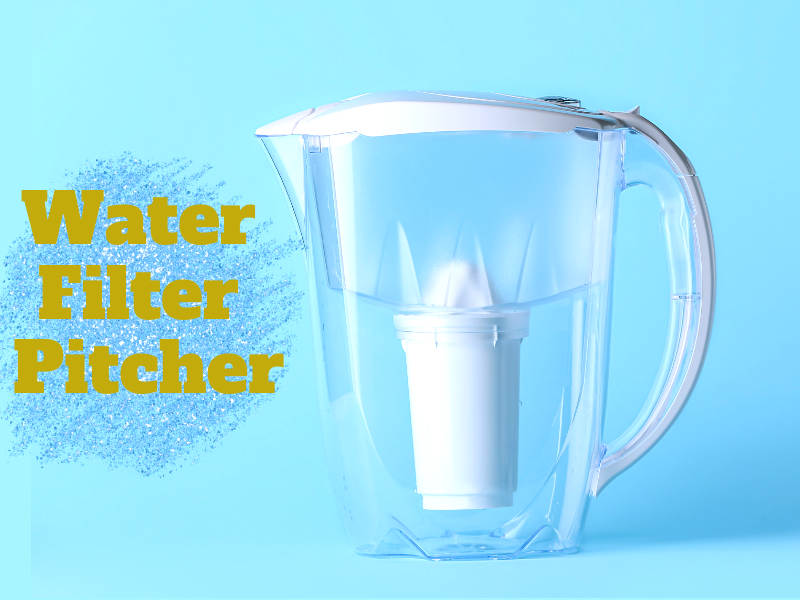
What Are Water Filter Pitchers?
Water filter pitchers are portable filtration devices that improve tap water quality. They have a pitcher, a reservoir for unfiltered water, and a replaceable filter. Pitcher filters use activated carbon to remove contaminants, making water cleaner and better tasting.
How Do Water Filter Pitchers Work?
Water pitcher filters use activated carbon filters to remove impurities. Activated carbon attracts and traps contaminants like chlorine, heavy metals, and organic compounds. The filtered water is then collected in the pitcher and ready to drink. Simple and effective, that’s why water filter pitchers are popular for households. However, ensuring that water filters have certifications like ANSI/NSF is crucial to guarantee their effectiveness and reliability.
Due to activated carbon, pitcher filters effectively remove many contaminants, but they have limitations. They don’t remove all types of contaminants, and their effectiveness can decrease over time. They also need to be replaced regularly.
Benefits of Using Water Filter Pitchers
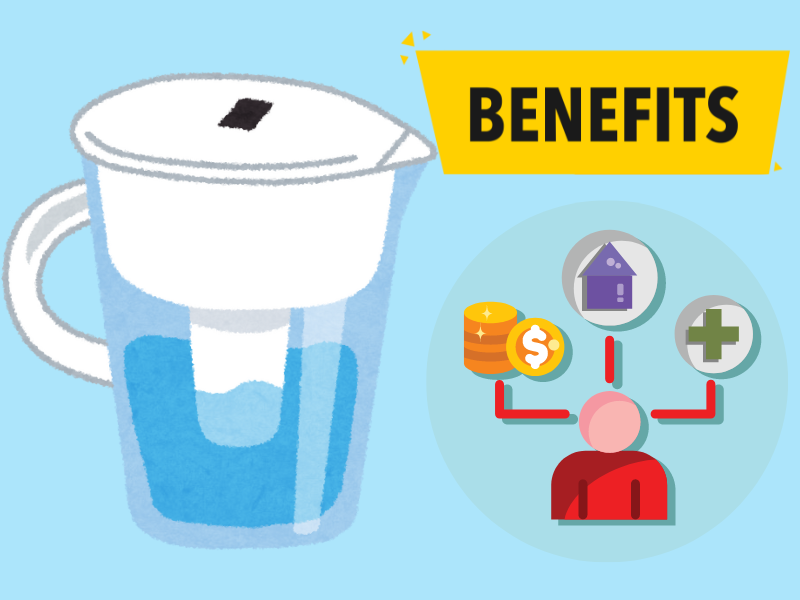
Improved Water Quality
One of the biggest benefits of water filter pitchers is better water quality. They remove contaminants that can affect the taste, odor, and safety of drinking water. This includes chlorine, lead, and other heavy metals and organic compounds. Brita filter, for example, is very effective in removing chlorine and lead.
Cost-Effective Solution
Water filter pitchers are more affordable than bottled water and complex filtration systems. You need to invest in the pitcher and replace filters periodically but overall it’s more cost-effective than other options.
Types of Water Filter Pitchers
Standard water filter pitchers and dispensers are the most common. They use activated carbon filters to remove contaminants and improve water quality. Brands like Brita and PUR offer a range of standard pitchers with different capacities and features. Advanced water filter pitchers like ZeroWater use a multi-stage filtration system to remove more contaminants. These pitchers often have additional filter elements like ion exchange resins to target specific impurities.
Key Features to Consider
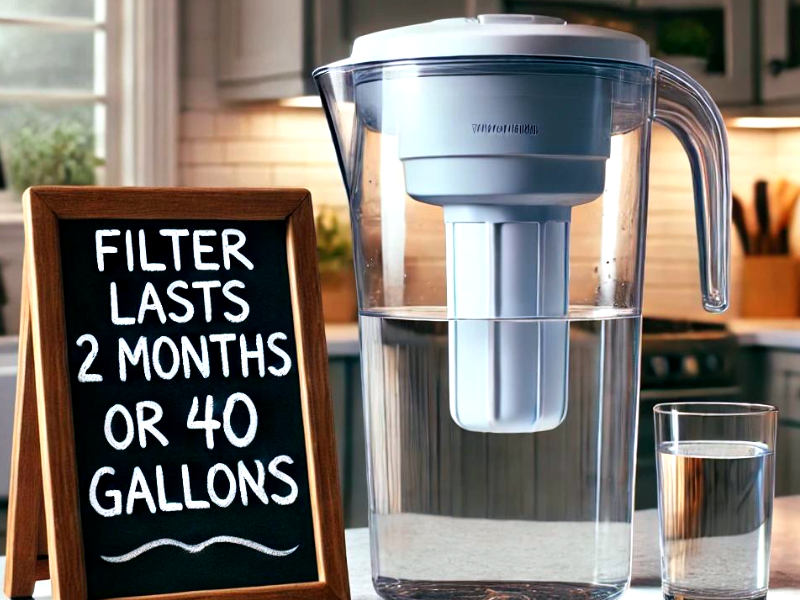
Filter life is a key consideration. Most replacement filters have a lifespan of about two months or 40 gallons, and it is crucial to replace them regularly to maintain functionality and prevent bacteria and mold growth. Most water filter pitchers have filters that last 2-3 months, depending on usage and water quality. To maintain performance follow the manufacturer’s instructions for replacing filters. Water filter pitchers come in different sizes, from small pitchers for individuals to big dispensers for families. When choosing a pitcher consider your household water consumption to make sure it’s enough for your needs.
Popular Water Filter Pitcher Brands
Brita is one of the most well-known brands in the water filtration market. Brita pitchers, equipped with the Brita filter, use activated carbon filters to remove chlorine, lead, and other contaminants. They offer a range of pitcher sizes and styles to suit different preferences. PUR water filter pitchers are another popular choice. They use a combination of activated carbon and ion exchange filters to reduce contaminants. PUR pitchers are known for their effectiveness in removing lead and other heavy metals.
How to Choose the Best Water Filter Pitcher
Before choosing a water filter pitcher, it's essential to understand tap water quality. You can obtain a water quality report from your local health department or use a home water testing kit. This information will help you select a pitcher that targets the specific contaminants present in your water supply. Think about your household's water consumption and preferences. If you have a large family, a pitcher with a higher capacity may be more suitable. Additionally, features such as filter life, ease of use, and design should be considered when deciding.
Installation and Maintenance
Setting up a water filter pitcher is straightforward. Start by washing the pitcher and reservoir with warm, soapy water. Rinse thoroughly and insert the filter according to the manufacturer's instructions. Fill the reservoir with tap water and allow it to pass through the filter before use. Regular maintenance is crucial for optimal performance. Replace the filter as the manufacturer recommends, typically every two to three months. Clean the pitcher and reservoir regularly to prevent the buildup of bacteria and other contaminants.
Common Contaminants Removed by Water Filter Pitchers
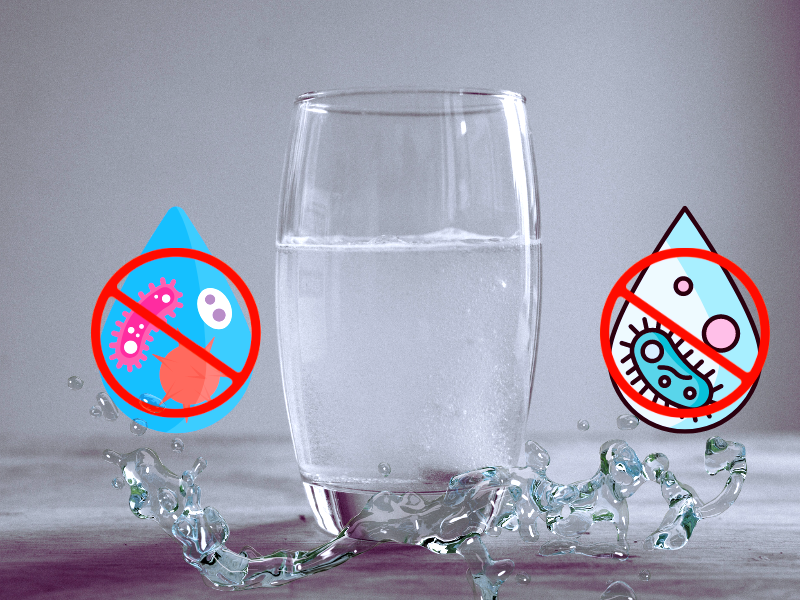
Chlorine is commonly used to disinfect tap water, but it can affect the taste and odor. Water filter pitchers with activated carbon filters effectively remove chlorine, resulting in better-tasting water. Lead is a toxic metal that can leach into tap water from old pipes. Water filter pitchers with activated carbon and ion exchange filters can reduce lead levels, making drinking water safer.
The Science Behind Activated Carbon Filters
Activated carbon filters are the unsung heroes in many water filter pitchers. These filters work by attracting and trapping contaminants through a process called adsorption. When tap water passes through the activated carbon, impurities like chlorine, organic compounds, and other contaminants stick to the surface of the carbon particles. This process significantly improves water taste and quality, making drinking water safer and more enjoyable.
The effectiveness of activated carbon filters is backed by the Water Quality Association, which certifies that these filters can remove a variety of specific contaminants. For instance, Brita filters and ZeroWater filters use activated carbon to reduce chlorine and other impurities. However, it's essential to replace filters regularly to maintain their efficiency. The filter life varies, so always follow the manufacturer's instructions for the best results.
Comparing Water Filter Pitchers to Bottled Water
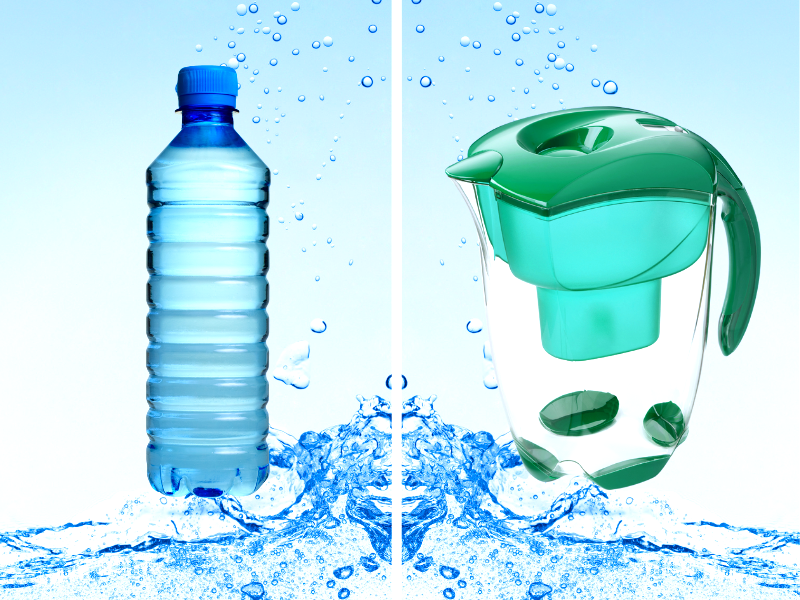
When weighing the pros and cons of water filter pitchers versus bottled water, cost and environmental impact are significant factors. Water filter pitchers, such as Brita pitchers, offer a cost-effective solution for improving water quality. Over time, using a water filter pitcher is much cheaper than constantly buying bottled water. Plus, it reduces plastic waste, making it an eco-friendly choice.
From an environmental perspective, water filter pitchers are a clear winner. Bottled water contributes to plastic pollution, whereas filter pitchers, especially those with long-lasting filters, minimize waste. Additionally, water filter pitchers can remove contaminants like chlorine and heavy metals, providing filtered water that rivals the quality of bottled water. So, are water filter pitchers worth it? For many, the answer is a resounding yes, given their benefits for both your wallet and the planet.
The Role of Activated Carbon Filters
How Activated Carbon Filters Work
Activated carbon filters work by attracting and trapping contaminants. The porous structure of activated carbon provides a large surface area for adsorption, allowing it to remove impurities effectively.
Benefits of Activated Carbon Filters
Activated carbon filters are highly effective at removing chlorine, organic compounds, and some heavy metals. They also improve the taste and odor of water, making it more enjoyable to drink.
Comparing Water Filter Pitchers to Other Filtration Systems
Faucet-mounted filters attach directly to the faucet and provide filtered water on demand. While they offer convenience, they may not remove as many contaminants as water filter pitchers with advanced filtration systems. Reverse osmosis systems use a multi-stage filtration process to remove many contaminants. They are highly effective but can be expensive and require professional installation. Water filter pitchers are a more affordable and portable alternative.
Environmental Impact of Water Filter Pitchers
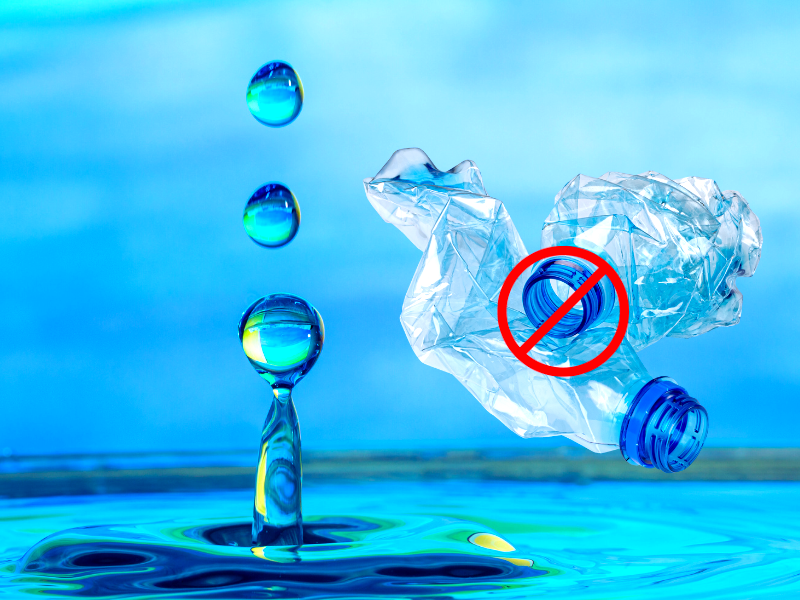
Using a water filter pitcher can significantly reduce plastic waste compared to bottled water. By filtering tap water at home, you can minimize the need for single-use plastic bottles. Some water filter pitcher brands offer eco-friendly options, such as recyclable filters and BPA-free materials. Choosing these products can further reduce your environmental footprint.
Health Benefits of Filtered Water
Filtered water often tastes better than tap water, encouraging increased water consumption. Staying hydrated is essential for overall health and well-being. Water filter pitchers can reduce your exposure to substances that may negatively impact your health by removing harmful contaminants, such as heavy metals, chlorine, and organic compounds.
Potential Drawbacks of Water Filter Pitchers
While water filter pitchers effectively remove many contaminants, they may not eliminate all impurities. For example, they may not remove bacteria or viruses. It's essential to understand the limitations of your chosen pitcher. Water filter pitchers require regular maintenance, including filter replacement and cleaning. Neglecting these tasks can reduce the pitcher's effectiveness and compromise water quality.
User Experiences and Reviews
Many users report improved water taste and quality after using water filter pitchers. They appreciate the convenience and cost savings compared to bottled water. Some users mention the need for frequent filter replacements and the potential for slow filtration rates. Choosing a pitcher that meets your needs and preferences is essential.
Tips for Maximizing the Benefits of Water Filter Pitchers
Always follow the manufacturer's instructions for filter replacement and maintenance. This ensures optimal performance and extends the life of your pitcher. Store filtered water in a clean, covered container in the refrigerator to maintain quality. Avoid leaving filtered water at room temperature for extended periods.
Conclusion
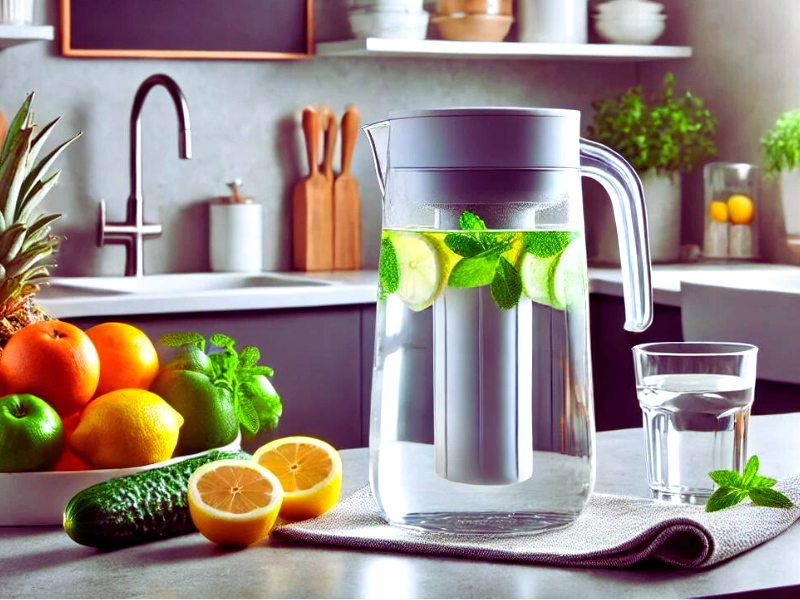
Water filter pitchers offer a convenient and cost-effective solution for improving tap water quality. By understanding the benefits, functionality, and considerations of using water filter pitchers, you can make an informed decision that meets your needs. Whether you choose a Brita, PUR, or ZeroWater pitcher, you'll enjoy cleaner, better-tasting water and the peace of mind that comes with knowing your water is safer to drink.
Summary
Water filter pitchers are a practical and affordable way to enhance the quality of tap water. They effectively remove contaminants like chlorine and lead, improving the taste and safety of drinking water. By choosing the right pitcher and maintaining it properly, you can enjoy the benefits of filtered water without the expense and environmental impact of bottled water. Want more tips on healthy living and water safety? Subscribe to our newsletter today!
FAQ
How often should I replace the filter in my water filter pitcher?
Most filters need to be replaced every 2-3 months, depending on usage and water quality. For optimal performance, follow the manufacturer’s instructions.
Can water filter pitchers remove bacteria and viruses?
Water filter pitchers don’t remove bacteria and viruses. They remove contaminants like chlorine, lead, and organic compounds. For bacteria and viral removal, a more advanced filtration system is considered.
Is the water filter pitcher dishwasher safe?
Many water filter pitchers are dishwasher safe but check the manufacturer’s instructions. Some parts like the filter should not be put in the dishwasher. Follow the care instructions provided by the manufacturer.








